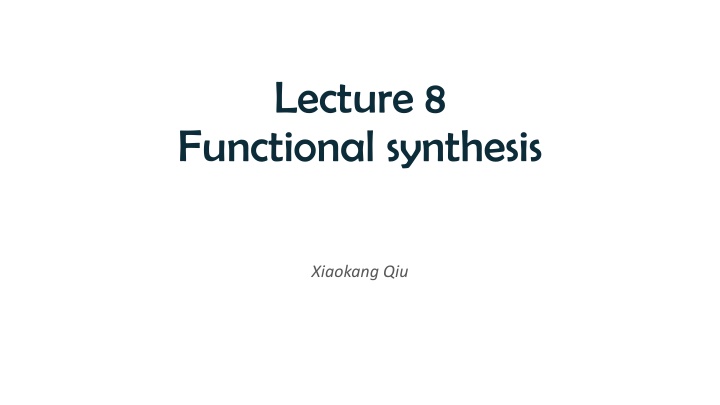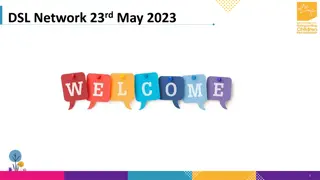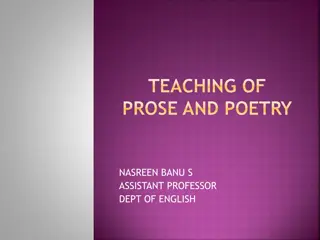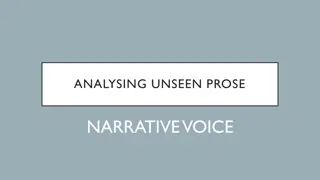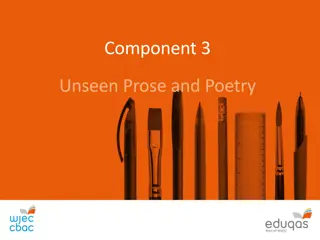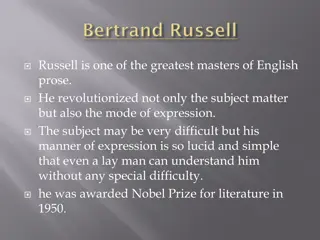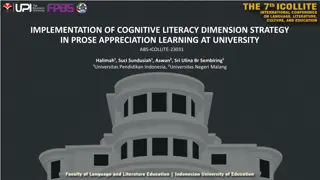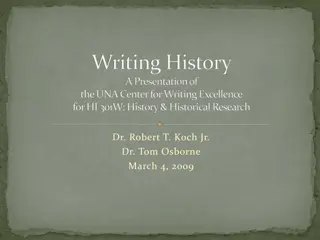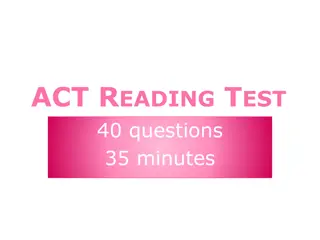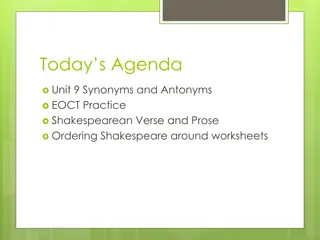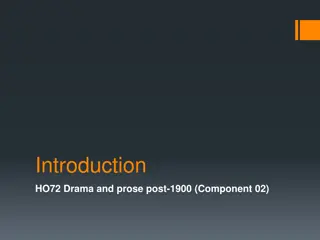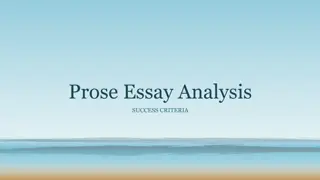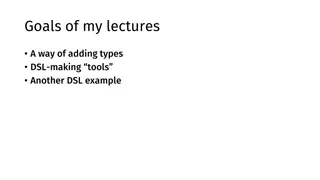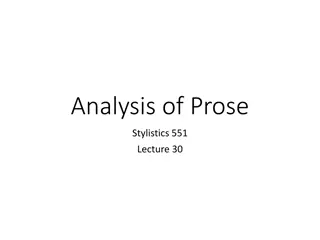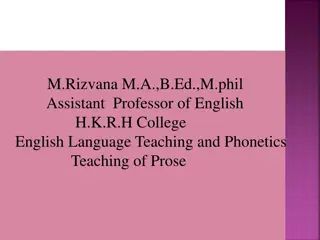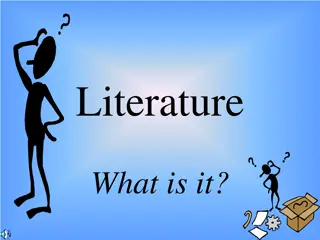Using the PROSE Framework for DSL Creation
This content provides insights into the PROSE framework, focusing on its use in creating Domain Specific Languages (DSLs) and Program by Example (PBE) applications. It includes details about the PROSE SDK, projects for extending or creating DSLs, PBE architecture, and VSA sub-DSL data structure. The content also touches on live sessions, synthesis strategies, and debugging methods related to PROSE.
Download Presentation

Please find below an Image/Link to download the presentation.
The content on the website is provided AS IS for your information and personal use only. It may not be sold, licensed, or shared on other websites without obtaining consent from the author.If you encounter any issues during the download, it is possible that the publisher has removed the file from their server.
You are allowed to download the files provided on this website for personal or commercial use, subject to the condition that they are used lawfully. All files are the property of their respective owners.
The content on the website is provided AS IS for your information and personal use only. It may not be sold, licensed, or shared on other websites without obtaining consent from the author.
E N D
Presentation Transcript
Lecture 8 Functional synthesis Xiaokang Qiu
Moving beyond Inductive synthesis We want to synthesize functions that satisfy richer correctness criteria Key questions Specification formalisms How do we describe the intended behavior? How do we ensure correctness No longer trivial as in the inductive case Synthesis approaches Deductive vs. inductive
The general synthesis problem ? ?? ??,? ???? ? ?? ??,??(?) ????
Defining correctness ? 0 ? ???(??) Precondition: out=Sort(n, in) Postcondition: ?.0 ? < ? 1 ??? ? ??? ? + 1 ??? ??? = ? ?.0 ? < ? 1 ? ?? ? = ???[?] ?.0 ? < ? 1 ? ?? ? = ???[?] ?:??? ???. ?.? < ? ??? ? = ?? ?(?) ?.? ? = ?
Multimodal Synthesis Trick: combine many simple specs in different formalisms to fully constrain the behavior Concrete scenarios Abstract scenarios Correct Code Synthesizer Synthesizer Partial specs Safety properties Structural Info
Ensuring correctness This is a hard problem in general ?? ??,? ???? Two points of view: Not my problem That s what program verification is for Synthesis should be guided by verification Synthesize code that is easier to prove correct Ensure correctness by construction
CEGIS Counterexample guided inductive synthesis Ideas Rely on an oracle to tell you if your program is correct If it is not, rely on oracle to generate counterexample inputs Reduce to an inductive synthesis problem
CEGIS Synthesize Check Insert your favorite checker here ?? ?.?. ???????(?,???) ? ?.?. ???????(?,???) ?? {???}
CEGIS in Sketch ? ?? ??,? ???? ? ?? ??,??(?) ???? ? ?? ? ??,?
CEGIS in Sketch a b c d + + ?(?,??) + + + + + + + + + + A A A A Synthesize Check ? (?,???) ? (?,???) ? (?,???) ? (?,???) ? ? (?,???) ? (?,???) ? (?,???) ?? {???}
Example You want to partition N elements over P procs How many elements should a processor get? N = 18 P = 5 Obvious answer is N/P Obvious answer is wrong!
Synthesizing a partition function What do we know? The interface to the function we want Not all processors will get the same # of elements The kind of expressions we expect void partition(int p, int P, int N, ref int ibeg, ref int iend){ if(p< expr({p, P, N, N/P, N%P},{PLUS,TIMES}) ){ iend = expr({p, P, N, N/P, N%P},{PLUS,TIMES}); ibeg = expr({p, P, N, N/P, N%P},{PLUS,TIMES}); }else{ iend = expr({p, P, N, N/P, N%P},{PLUS,TIMES}); ibeg = expr({p, P, N, N/P, N%P},{PLUS,TIMES}); } } N%P P + N * p N/P
Synthesizing a partition function How does the system know what a partition is? harness void testPartition(int p, int N, int P){ if(p>=P || P < 1){ return; } int ibeg, iend; partition(p, P, N, ibeg, iend); assert iend - ibeg < (N/P) + 2; if(p+1 < P){ int ibeg2, iend2; partition(p+1, P, N, ibeg2, iend2); assert iend == ibeg2; } if(p==0){ assert ibeg == 0; } if(p==P-1){ assert iend == N; } } Partitions should be balanced Adjacent partitions should match First and last partition should go all the way to the ends
